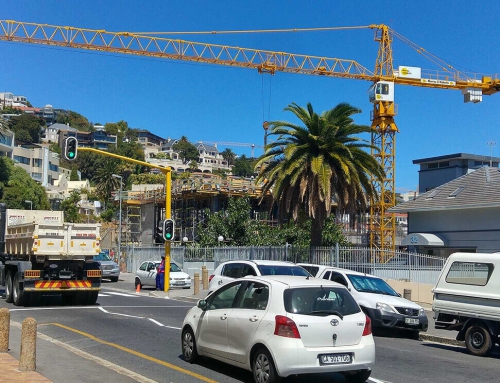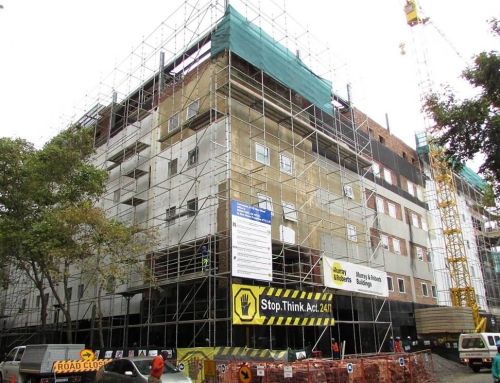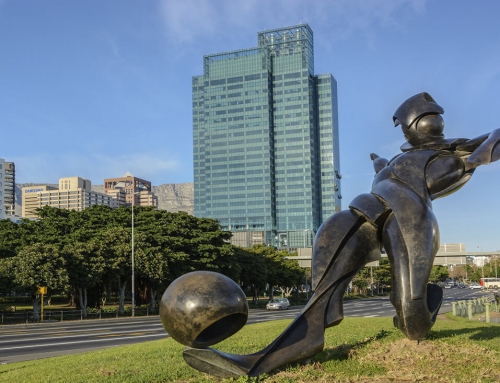There is a ‘new’ name on South Africa’s construction landscape, as Concor Infrastructure raises its flag over the edifice of Murray & Roberts Infrastructure, following the recent acquisition of the Murray & Roberts Infrastructure and Building Platform by a consortium led by the Southern Palace Group.
The name, of course, is not new at all, with the history of the Concor business dating back nearly 70 years to its establishment in 1948. The remarkable success of Concor – initially specialising in concrete construction and expanding into civil construction and building – was clearly evident from its growth; in its last year as a listed entity on the JSE over ten years ago, its turnover was R1,6 billion. In 2006, Concor was acquired by Murray & Roberts, whose own heritage in the construction sector goes back 115 years.
Now, the name Concor lives once more as a construction brand, and as the proud mantle for the heritage, skills and experience that have continued to grow in the nurturing environment of Murray & Roberts Infrastructure over the past decade.
Concor Infrastructure managing director, Eric Wisse says there is much to look forward to as this new chapter opens for the business and its committed staff.
“Our new ownership will give yet another boost to our past efforts in developing a strong and transformed business to serve South Africa and markets beyond our borders,” says Wisse. “We have a proven management team and a depth of skills and experience in our ranks that positions us well for growth.”
Already operating on a strong Level 2 BBBEE basis before the acquisition by Southern Palace, Concor Infrastructure has a solid scorecard position reflecting its historical commitment to employment equity and skills development as well as supplier and enterprise development. He says the involvement of the new shareholders is certainly going to create valuable leverage for the business to apply its expertise in ever-widening markets.
Wisse says the company aims to confirm its position as the leading black owned Tier 1 infrastructure player in South Africa and sub-Saharan Africa; it is already active in all nine provinces locally, and regularly performs contracts in Southern African Development Community (SADC) countries.
“One highly successful aspect of our operating model is to follow our established customers wherever they have work,” he says. “This approach means that we have been engaged in projects all over Africa; we still have registered companies in many African countries, and are ready to open more in any countries where we find work.”
Concor Infrastructure is confident that it will play a growing role in infrastructure development throughout Africa, especially where South Africa-based development finance institutions like the Development Bank of Southern Africa (DBSA) are involved in the funding.
“The need for and potential impact of new infrastructure in Africa is enormous,” says Wisse, “and we stand ready to commit our considerable resources and expertise to ensuring world class facilities anywhere in Africa where we have the opportunity.”
He says that Concor Infrastructure has been an active participant in the arena of public infrastructure, with its ‘base-load’ work in the transport sector – mainly focused on national and provincial road projects. Current projects underway include contracts from the South African National Roads Agency SOC Limited (SANRAL) and provincial public works departments in the North West and Eastern Cape provinces as well as the toll road concession companies.
“Our flagship road project currently is on the N2 highway between Mtunzini and Empangeni in KwaZulu-Natal, where we are building a new carriageway involving extensive road works and bridges,” says Wisse. “In the Eastern Cape, we are busy with a contract to widen and improve a section of the R72 between East London and Port Alfred. We are also upgrading the R61 route between Bizana and Magusheni in that province.”
In the North West, Concor Infrastructure is constructing what was previously a gravel road between the small towns of Ganyesa and Vragas, while on another SANRAL project work is underway upgrading the R67 Queenstown-Whittlesea road.
The company has played in important role over the years in the energy sector, and continues to be involved in power station construction. An exciting and more recent segment opening up for opportunity has been renewable energy, in particular the growth of wind-generated power.
“We were involved in South Africa’s first large wind farm, between Jeffreys Bay and Humansdorp in the Eastern Cape, as early as 2012, where we provided site access roads as well as foundations and hard stands for 60 turbines,” Wisse says. “We have continued to build our experience in this field, and today stand as the preferred civil contractor on a number of wind projects that form part of bid window 4 of the REIPP programme led by the Department of Energy.”
Past projects in this sector include the 35 turbine wind farm near Noupoort in the Northern Cape, completed in March last year, and a wind farm near De Aar which comprises 67 turbines where Concor Infrastructure finished its work early this year.
Most recently, Concor Infrastructure was responsible for the substantial completion of the Loeriesfontein and Khobab Wind Farm. This contract comprises the construction of all 122 wind turbine generator foundations as well as the adjoining hard stands and all internal roads.
The water sector – mainly bulk supply and large dams – is another important area of expertise built up over decades in the business. The company was a vital partner in the recently completed Ingula pumped storage scheme in KwaZulu-Natal, building both the upper and lower dams. More recent work includes the completion of a large reservoir at Orange Farm south of Johannesburg, and a water tower and reservoir in the Lanseria area of Gauteng.
A fourth significant sector of Concor Infrastructure’s involvement has been mining. Despite the downturn in the fortunes of this sector in recent years, the company is currently busy with civil works to expand the important Grootegeluk coal mine for Exxaro and expects the mining market to recover soon. The traditional focus in this segment includes all civil mining infrastructure including haul roads, platform and foundations for process plants, rail load-out sidings, box-cuts for incline shafts and other related surface infrastructure.
With its new ownership credentials, Concor Infrastructure is poised for an exciting expansion phase, says Wisse.





